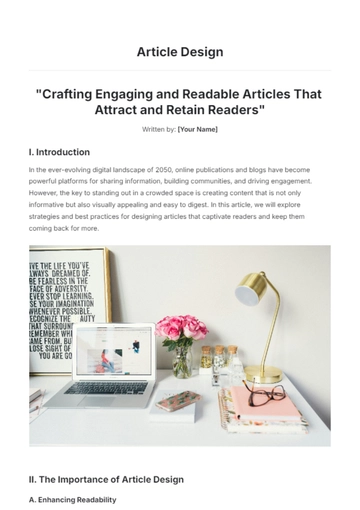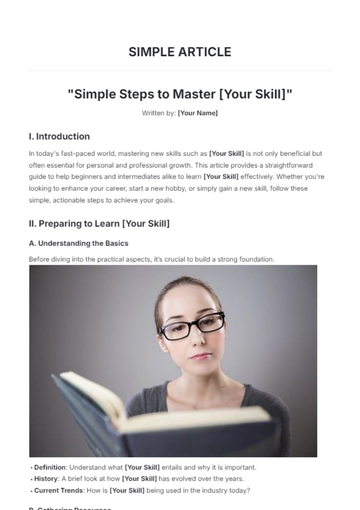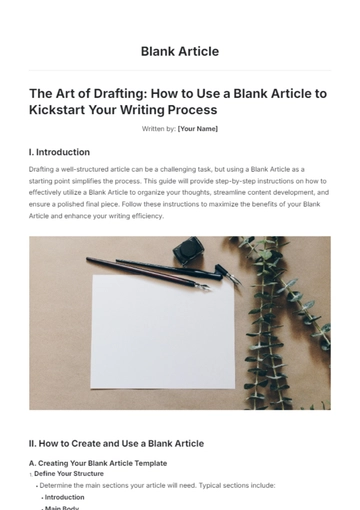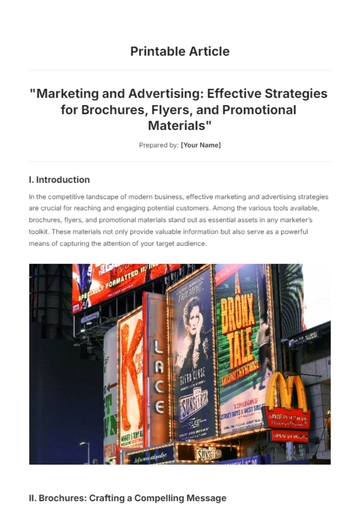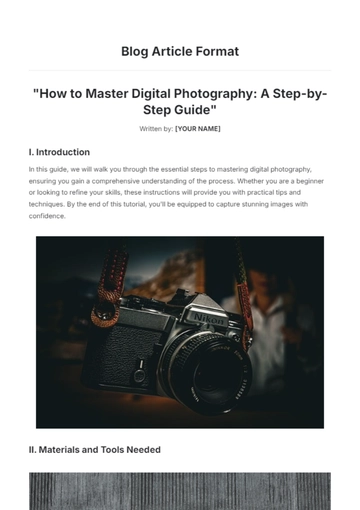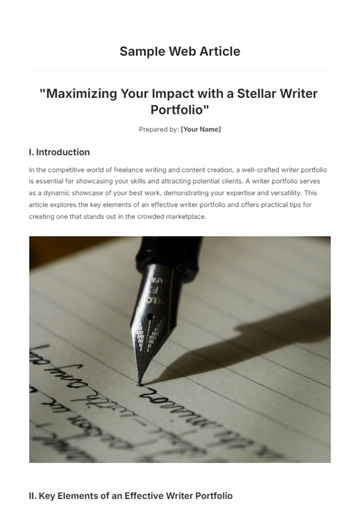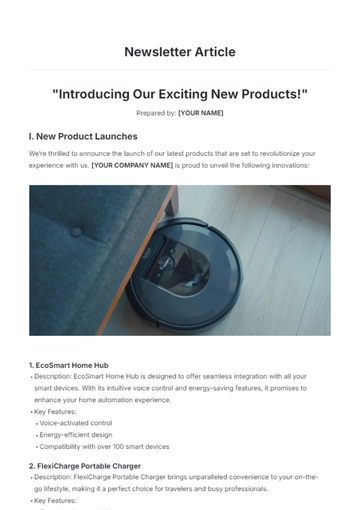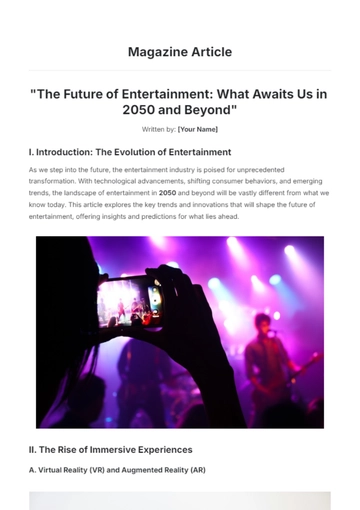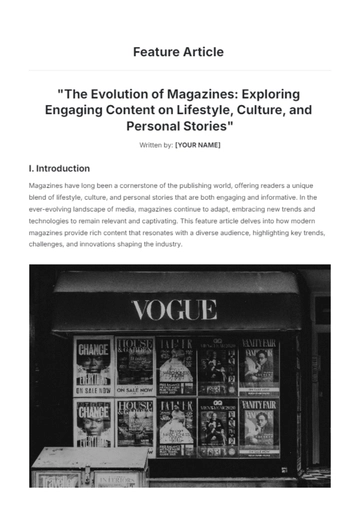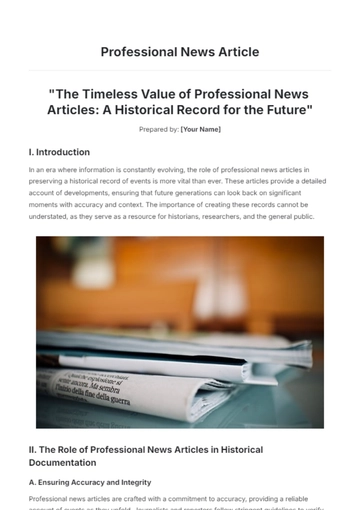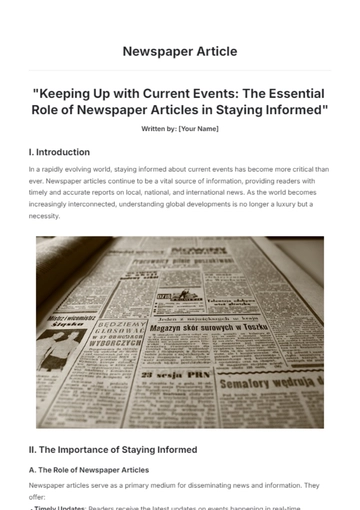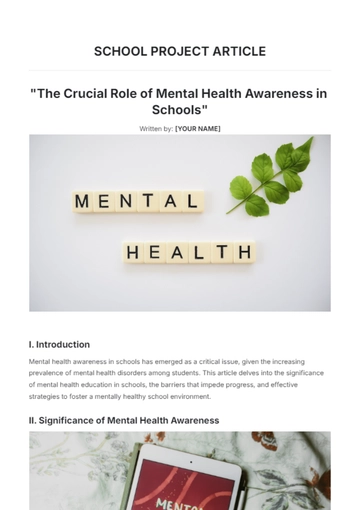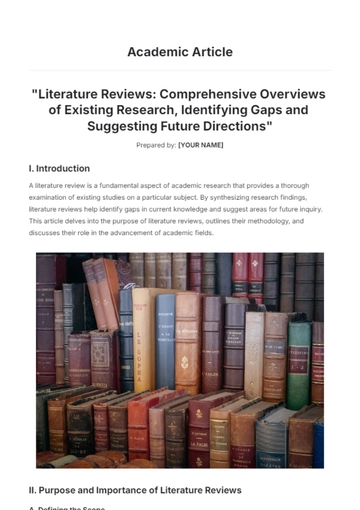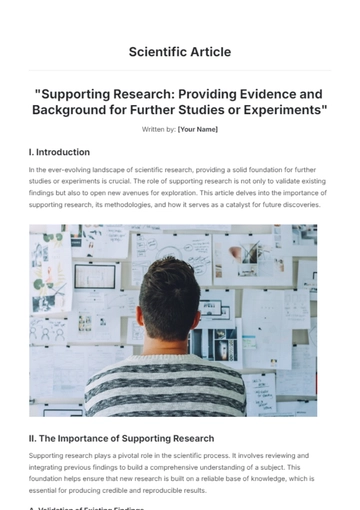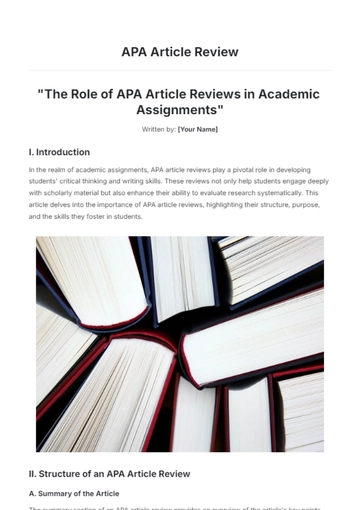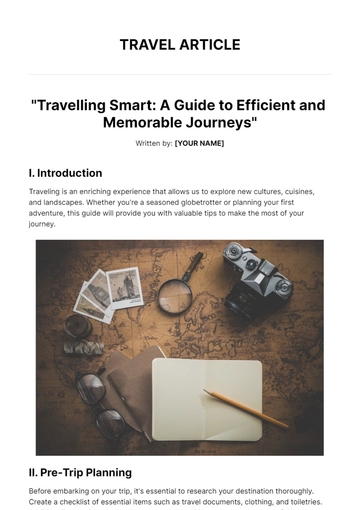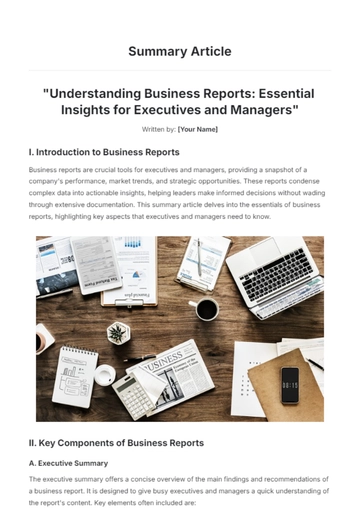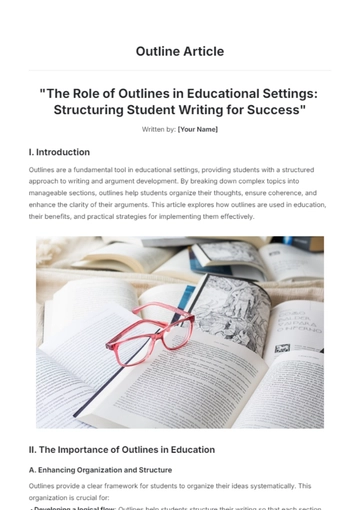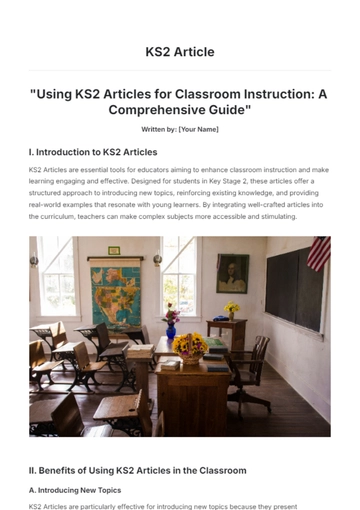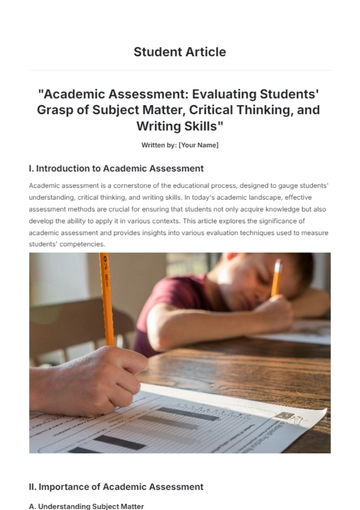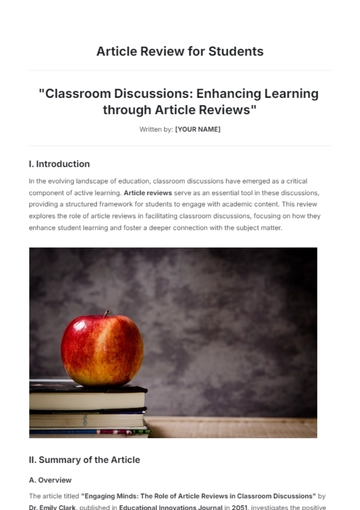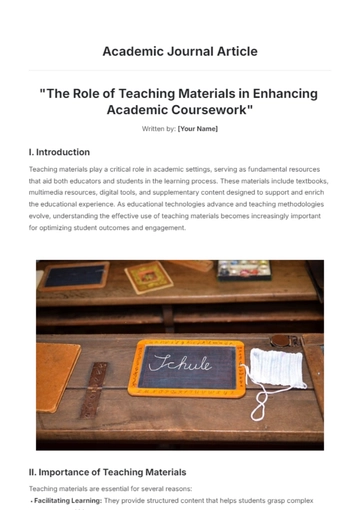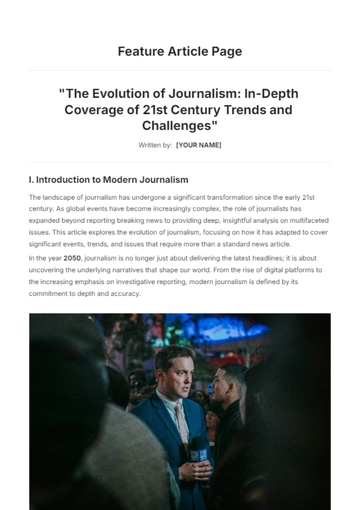Free Adjective Article
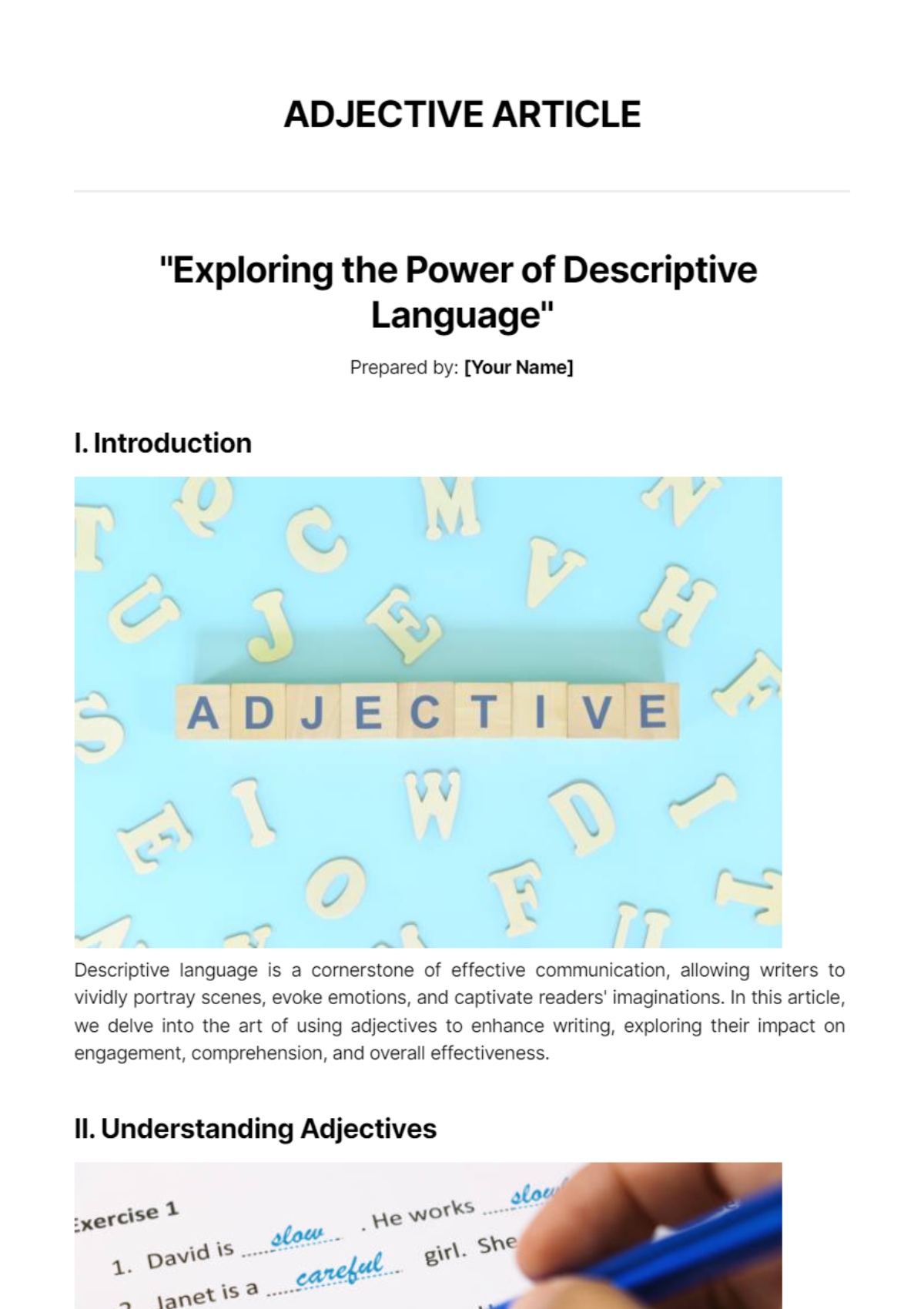
"Exploring the Power of Descriptive Language"
Prepared by: [Your Name]
I. Introduction

Descriptive language is a cornerstone of effective communication, allowing writers to vividly portray scenes, evoke emotions, and captivate readers' imaginations. In this article, we delve into the art of using adjectives to enhance writing, exploring their impact on engagement, comprehension, and overall effectiveness.
II. Understanding Adjectives
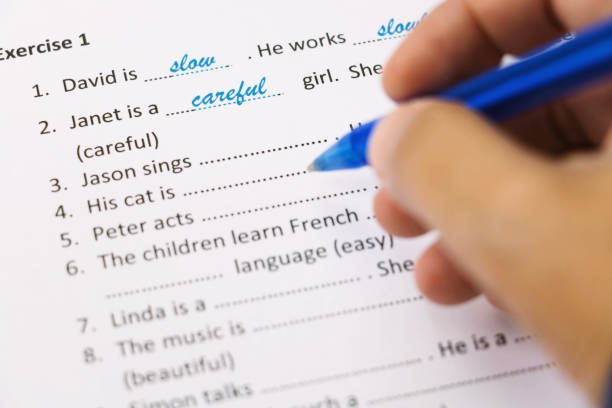
A. Definition and Function
Adjectives are words that modify or describe nouns, providing additional information about their qualities, characteristics, or attributes.
By adding detail and specificity, adjectives enrich the reader's understanding and create a more vivid and immersive reading experience.
B. Types of Adjectives
Adjectives can be categorized into various types based on their functions and forms, including descriptive adjectives, demonstrative adjectives, and quantitative adjectives.
Each type of adjective serves a distinct purpose in conveying different aspects of the noun they modify.
C. Examples and Usage
Examples of descriptive adjectives include words like "beautiful," "spacious," and "delicious," which paint a picture and evoke sensory experiences.
Effective use of adjectives can transform ordinary descriptions into captivating narratives, engaging readers and bringing stories to life.
III. Benefits of Using Adjectives
A. Enhanced Imagery and Vividness
Adjectives enable writers to create vivid imagery and sensory experiences, allowing readers to visualize scenes and characters more clearly.
By choosing the right adjectives, writers can evoke specific emotions and convey the mood or atmosphere of a narrative with precision.
B. Improved Engagement and Interest
Descriptive language captivates readers' attention and fosters a deeper emotional connection with the text.
Adjectives enhance the reader's engagement by making descriptions more dynamic, compelling, and memorable.
C. Clarity and Precision
Adjectives provide clarity and precision in communication by specifying the qualities or attributes of nouns.
Clear and concise use of adjectives helps eliminate ambiguity and ensures that the intended message is conveyed accurately to the reader.
IV. Techniques for Using Adjectives Effectively
A. Selectivity and Precision
Choose adjectives that are specific, relevant, and appropriate to the context of the narrative.
Avoid overusing adjectives or relying on clichés, and strive for precision in your descriptions to create a more impactful impression.
B. Sensory Detail and Imagination
Incorporate sensory detail and imaginative language to create rich and immersive descriptions.
Appeal to the reader's senses by using adjectives that evoke sight, sound, touch, taste, and smell, enhancing the overall reading experience.
C. Revision and Editing
Review and revise your writing to ensure that adjectives are used purposefully and effectively.
Edit for clarity, conciseness, and coherence, removing unnecessary adjectives and refining descriptions to improve the flow and readability of the text.
V. Conclusion

Adjectives are powerful tools for writers, enabling them to create vivid and compelling narratives that resonate with readers. By harnessing the descriptive power of adjectives, writers can enrich their writing, engage their audience, and leave a lasting impression. Whether crafting fiction, marketing content, or academic essays, mastering the art of using adjectives effectively is essential for effective communication and storytelling.
[Your Name] is a seasoned writer and language enthusiast with a penchant for crafting engaging and descriptive content. With a background in creative writing and digital marketing, [Your Name] is passionate about harnessing the power of words to connect with audiences and drive meaningful engagement. Connect with [Your Name] for expert insights on writing techniques and content strategy.
- 100% Customizable, free editor
- Access 1 Million+ Templates, photo’s & graphics
- Download or share as a template
- Click and replace photos, graphics, text, backgrounds
- Resize, crop, AI write & more
- Access advanced editor
Craft engaging and descriptive articles effortlessly with our Adjective Article Template from Template.net. This editable and customizable template is designed to help writers infuse their content with vivid language and captivating descriptions. With our Ai Editor Tool, you can easily modify the template to suit your writing style and editorial needs. Elevate your articles with vibrant adjectives and engaging prose.

